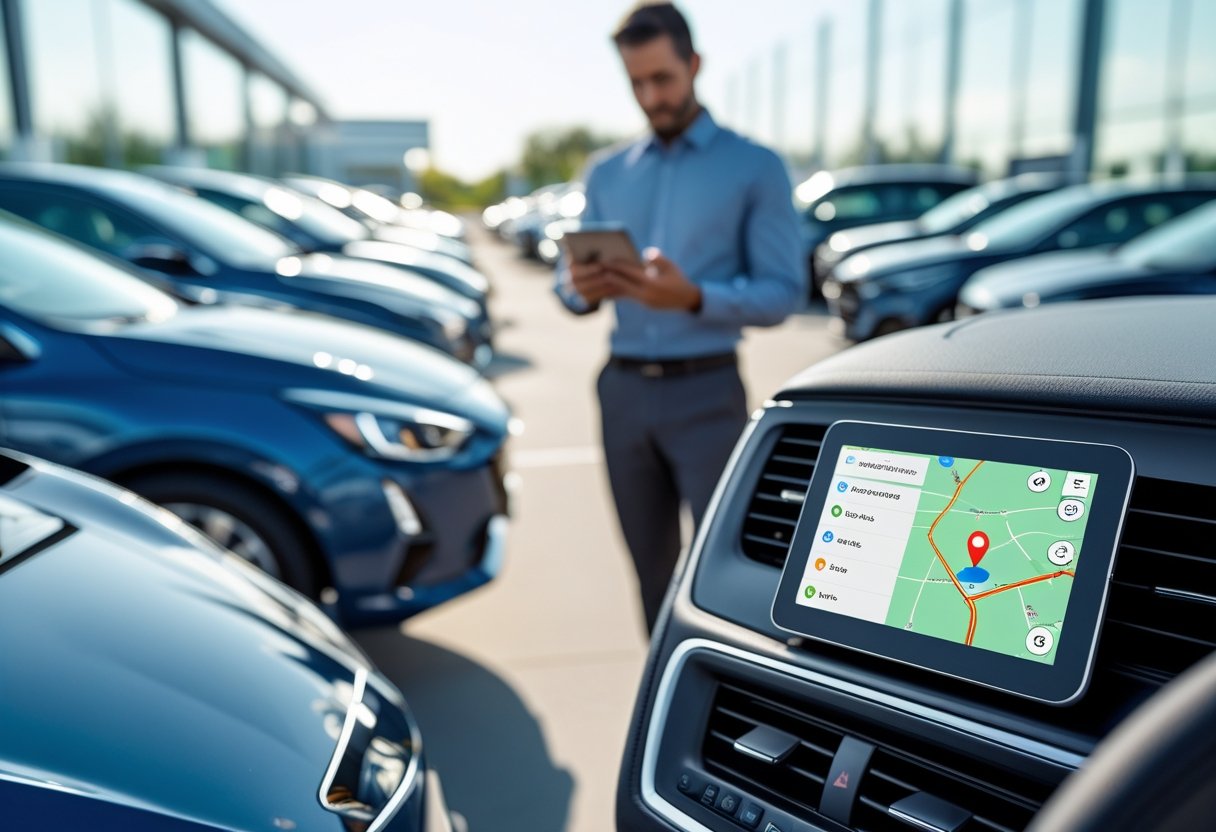How to start saving money
Lorem ipsum dolor sit amet, consectetur adipiscing elit lobortis arcu enim urna adipiscing praesent velit viverra sit semper lorem eu cursus vel hendrerit elementum morbi curabitur etiam nibh justo, lorem aliquet donec sed sit mi dignissim at ante massa mattis.
- Neque sodales ut etiam sit amet nisl purus non tellus orci ac auctor
- Adipiscing elit ut aliquam purus sit amet viverra suspendisse potent
- Mauris commodo quis imperdiet massa tincidunt nunc pulvinar
- Excepteur sint occaecat cupidatat non proident sunt in culpa qui officia
Why it is important to start saving
Vitae congue eu consequat ac felis placerat vestibulum lectus mauris ultrices cursus sit amet dictum sit amet justo donec enim diam porttitor lacus luctus accumsan tortor posuere praesent tristique magna sit amet purus gravida quis blandit turpis.

How much money should I save?
At risus viverra adipiscing at in tellus integer feugiat nisl pretium fusce id velit ut tortor sagittis orci a scelerisque purus semper eget at lectus urna duis convallis. porta nibh venenatis cras sed felis eget neque laoreet suspendisse interdum consectetur libero id faucibus nisl donec pretium vulputate sapien nec sagittis aliquam nunc lobortis mattis aliquam faucibus purus in.
- Neque sodales ut etiam sit amet nisl purus non tellus orci ac auctor
- Adipiscing elit ut aliquam purus sit amet viverra suspendisse potenti
- Mauris commodo quis imperdiet massa tincidunt nunc pulvinar
- Adipiscing elit ut aliquam purus sit amet viverra suspendisse potenti
What percentege of my income should go to savings?
Nisi quis eleifend quam adipiscing vitae aliquet bibendum enim facilisis gravida neque. Velit euismod in pellentesque massa placerat volutpat lacus laoreet non curabitur gravida odio aenean sed adipiscing diam donec adipiscing tristique risus. amet est placerat in egestas erat imperdiet sed euismod nisi.
“Nisi quis eleifend quam adipiscing vitae aliquet bibendum enim facilisis gravida neque velit euismod in pellentesque”
Do you have any comments? Share them with us on social media
Eget lorem dolor sed viverra ipsum nunc aliquet bibendum felis donec et odio pellentesque diam volutpat commodo sed egestas aliquam sem fringilla ut morbi tincidunt augue interdum velit euismod eu tincidunt tortor aliquam nulla facilisi aenean sed adipiscing diam donec adipiscing ut lectus arcu bibendum at varius vel pharetra nibh venenatis cras sed felis eget.
Car dealerships sometimes install GPS tracking devices on vehicles. This is not a universal practice.
Many dealerships use trackers for inventory management, security, or to meet lender requirements, especially for financed or used cars. While it is legal for dealerships to place these devices, disclosure practices vary.
Some trackers may remain active even after purchase. Buyers should be aware of this possibility.

Tracking devices are usually installed in hidden areas like under the dashboard or near the driver’s compartment. The purpose is to protect dealership assets or monitor loaned vehicles.
Not all dealerships use trackers. Most that do will inform buyers upfront or charge an extra fee.
Knowing if a car has a tracker and the privacy implications helps consumers make informed choices.
Do Dealerships Put Trackers On Cars?

Dealerships sometimes install GPS tracking devices for security, inventory management, and financing controls. The use of these trackers depends on the vehicle type and dealership policy.
Common Practices Among Car Dealers
Many dealerships place GPS tracking devices on cars in their inventory. This helps prevent theft and allows them to monitor vehicle locations.
Dealers often disclose the presence of these devices, especially if the tracker is tied to a financing agreement. In some cases, disclosure may not be clear.
When loans are involved, lenders may require GPS trackers as a condition. These devices may stay active until the loan is paid off.
After the sale, dealers usually remove or deactivate trackers unless the customer agrees to keep them or financing requires continued use.
Types of Vehicles Most Likely to Have Trackers
Used cars, especially those financed through subprime lenders, are most likely to have GPS tracking devices. This helps lenders reduce risk by enabling vehicle location and sometimes controlling the engine remotely.
New cars less often have dealer-placed trackers. Some new vehicles come with manufacturer-installed GPS for telematics and security.
These factory trackers are usually disclosed as part of the vehicle’s systems.
Differences Between New and Used Cars
New cars rarely have GPS trackers added by dealers unless they are factory-installed. Factory trackers are used for emergency assistance and diagnostics.
Used cars are more likely to retain dealer-installed or finance-related trackers. Dealers often keep these devices active to ensure loan repayment unless the customer asks for removal.
This tracking can affect privacy, so buyers should clarify this before signing contracts.
Reasons Dealerships Use GPS Tracking Devices

Dealerships install GPS tracking devices for practical reasons. These devices help manage inventory, prevent theft, and monitor demonstration cars.
Inventory Management and Security
GPS trackers provide dealerships with real-time location data on their inventory. This makes it easier to find vehicles across large lots.
The technology helps keep vehicles organized and reduces the risk of misplaced cars. It also streamlines vehicle logistics for service or delivery.
Security is improved because GPS data can alert staff if cars are moved outside approved areas. Many dealers connect these systems with their inventory management software.
Theft Prevention and Recovery
Dealerships use GPS trackers to deter vehicle theft. Discreet devices allow immediate tracking if a car is stolen.
Some systems send alerts if a vehicle leaves the lot unexpectedly. This helps law enforcement recover stolen vehicles faster.
Dealers may charge extra for this security feature or include it in protection plans.
Monitoring Demonstration Vehicles
Demonstration vehicles used for test drives need close monitoring. GPS tracking devices let dealers keep tabs on these cars in real time.
By monitoring routes and driving times, dealerships ensure demos are used according to policy. The data helps spot unusual activity, like long test drives or cars leaving approved areas.
This tracking reduces the risk of damage or loss and helps dealers control their assets during sales.
How GPS Trackers Are Installed on Cars

Dealerships install GPS trackers to balance visibility, security, and access for monitoring. They place trackers to avoid detection but maintain reliable signal transmission.
Typical Installation Locations
Dealerships often hide GPS trackers inside the vehicle. Common spots include:
- Under the dashboard near wiring harnesses.
- Inside the center console or glove box.
- Beneath the seats or in the seat frame.
- Behind interior panels or inside wheel wells.
Trackers are rarely placed outside the vehicle, as these can be removed easily. Some connect to the car’s electrical system, while others use internal batteries.
Placement ensures the device gets a good GPS signal.
Methods of Concealment
Dealers hide GPS trackers to prevent discovery. They may use existing wiring, hide devices behind panels, or place them inside hollow parts of the car.
Some trackers are factory-installed and integrated into the electronics, making them hard to find. Aftermarket devices might be attached with adhesive or tucked away using foam or tape.
Concealment helps prevent damage and accidental removal.
Signs Your Car May Have a Tracker
It can be hard to detect a dealer-installed GPS tracker without searching. Look for:
- Unusual wiring under the dashboard or near fuse boxes.
Myths and Misconceptions About Dealership Trackers
There are many misunderstandings about GPS trackers in new cars. Some people think trackers are always included or that dealerships use them mainly to watch customers.
In reality, the situation depends on legal and practical factors.
Are Trackers Standard in All New Cars?
GPS tracking devices are not standard in every new car. Some manufacturers include them as part of telematics or emergency systems.
Most new vehicles do not come with GPS trackers installed just for location monitoring. Dealerships sometimes add trackers to their vehicles for security or to manage their inventory.
This is not a universal practice. Buyers should check their lease or sales paperwork for any mention of tracking devices.
You can look for trackers by inspecting areas like the OBD-II port or under the dashboard. It is important to know the difference between manufacturer-installed telematics and GPS tracking devices added by the dealership.
Dealership Intent and Consumer Rights
Dealerships often use trackers to protect their interests. This includes recovering unpaid vehicles or managing loaner fleets.
Their intent usually focuses on inventory control. It is not meant for constant driver surveillance.
Legally, dealerships must disclose the presence of tracking devices. This applies if they intend to monitor a vehicle after sale or lease.
Secretly tracking a customer without consent can infringe on privacy rights. It may also lead to legal challenges.
Consumers have the right to request removal or disablement of such devices upon purchase. Clear communication with the dealership helps avoid misunderstandings about vehicle trackers.



